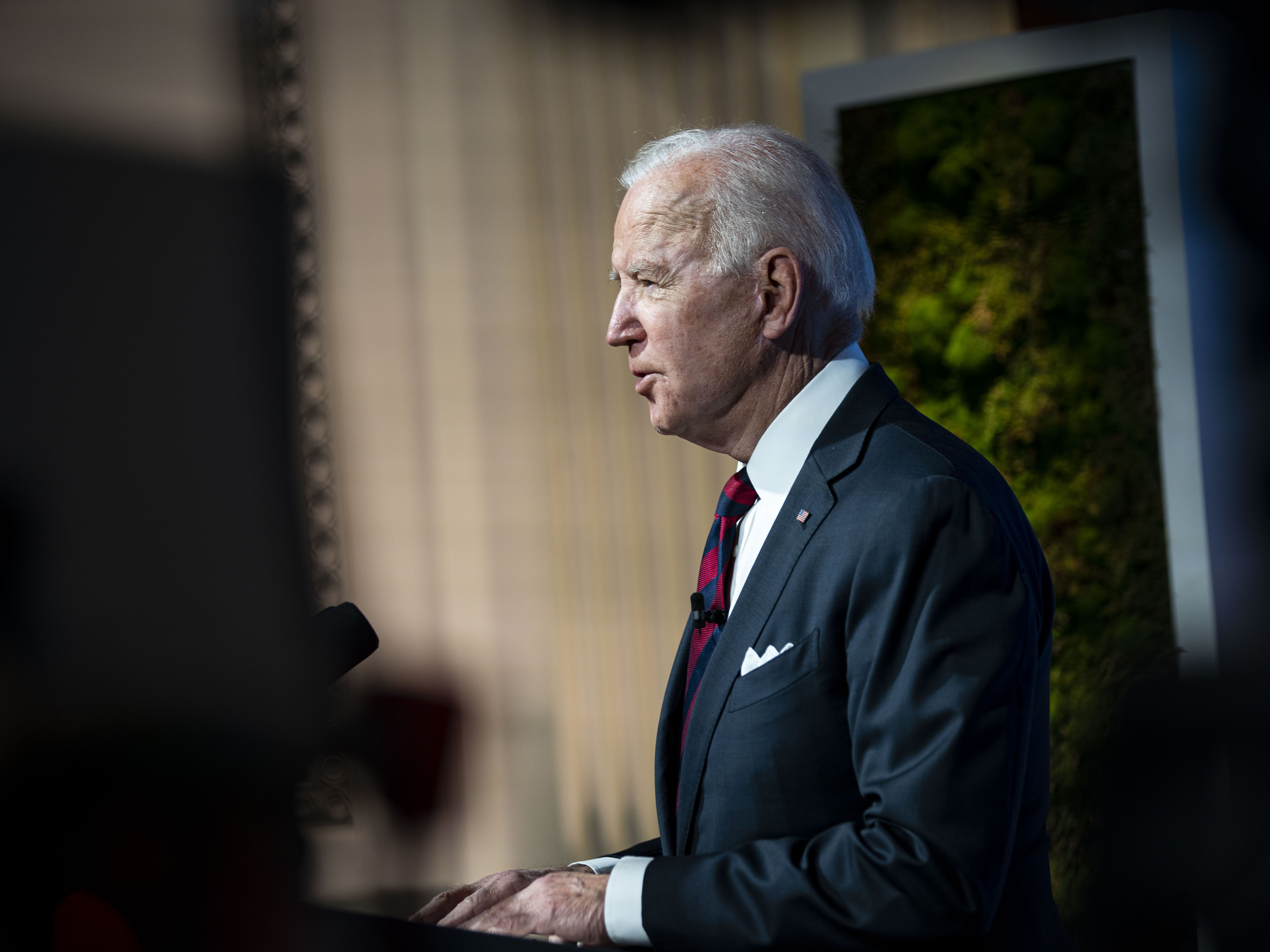
Visit Our Sponsors |
|
|
|
|
|
|
|
|
|
|
|
|
|
|
|
|
|
|
|
|
|
|
|
|
|
|
|
|
|
|
|
|
|
|
|
|
|
|

President Joe Biden’s pledge to double the money the U.S. will spend helping poorer nations fight climate change is drawing a mixed response from environmentalists. But the real test is whether he can win over Congress and spur other countries to step up their own climate ambitions.
In April, Biden said that the U.S. would double its spending to $5.7 billion, and in his first speech to the United Nations as president on Tuesday, he vowed to “double that number again,” bringing the nation’s commitment to about $11.4 billion a year by 2024.
It’s a big step toward meeting a global goal for wealthy nations to provide a total of $100 billion annually for less-developed countries to help fight climate change. But it still falls short of the $40 billion or more activists have said the U.S. should be providing. Biden will also face the challenge of getting a closely divided Congress to allocate funds.
“This is more in line with what the U.S. needs to do,” said Jake Schmidt, senior director of the Natural Resources Defense Council’s international climate program, on Tuesday.
World leaders are preparing for COP26, a major United Nations climate conference in Glasgow in less than six weeks, and climate finance is one of the critical issues on the agenda. Indonesia, Brazil and other nations have made clear their greenhouse gas cuts should be explicitly tied to aid from richer nations.
'Woefully Short'
“Climate finance to help the world’s vulnerable people is the elephant in the room heading towards the COP26 climate summit,” said Mohamed Adow, director of the think tank Power Shift Africa.
Even with Biden’s commitment, “the U.S. is still woefully short of what it owes and this needs to be increased urgently,” Adow said in a statement. “Biden doing the bare minimum is not what we expected from a Democratic president who claimed to be a major break from the dark days of the Donald Trump era.”
But Biden’s pledge could help facilitate climate negotiations ahead of the Glasgow conference and spur additional financial contributions, said COP26 President Alok Sharma, in a Bloomberg Television interview on Tuesday.
“It will act as an unblocker in some of the discussions that are going on and I hope it will also ensure that it provides a spur for other donors to come forward as well with additional commitments,” Sharma said.
Biden said he would “work with Congress” on the new pledge after previously asking lawmakers to spend $2.5 billion on climate-related programs during the fiscal year 2022. Lawmakers are on track to boost that amount to at least $2.8 billion. Another $1 billion or so is expected annually in renewable project financing by the U.S. International Development Finance Corp.
To make a pledge credible, the Biden administration will need to “back it up with the degree of arm twisting that is needed in Congress to get the money through,” Joe Thwaites, an associate in the World Resources Institute’s Sustainable Finance Center, said in an interview. While Congress has shown support for domestic climate investments, “we’re not quite seeing that translate over to the rest of the foreign affairs field.”
Closer to Commitment
The $11.4 billion in annual climate spending could be complemented by private capital and multilateral development bank financing of clean energy projects. Thwaites said when that is added into the $11.4 billion pledge, “it may be possible for the U.S. total to reach around $30 billion per year,” bringing the U.S. much closer to what activists say is its share of a $100 billion commitment rich nations promised to offer annually by 2020.
However, some activists have been pushing the U.S. to spend as much as $800 billion through 2030 to account for the country’s historic greenhouse gas emissions and contribution to climate change.
Karen Orenstein, director of the Climate and Energy Justice Program at Friends of the Earth U.S., called the pledge “extraordinarily insufficient” compared to what climate science and justice demand.
“We are in a climate emergency and the U.S. is throwing droplets at a fire,” said Orenstein. “The climate pollution the U.S. has produced is already causing suffering around the world.”
Even after the U.S. pledge is doubled to more than $11 billion, it’s still less than half the total commitments from the European Union. And rich nations as a whole have failed to meet their 2009 pledge to deliver $100 billion a year by 2020 to help poor countries confront climate change, shift to clean energy and build resilience. In 2019, the total came in at about $80 billion.
Despite the challenges and the criticism, Biden’s more ambitious stance is likely to give international climate efforts a boost at a critical time, said Alden Meyer, a senior associate with the London-based research group E3G.
“Some people will say this is nowhere near enough, but this will be a pretty big step forward,” he said.
RELATED CONTENT
RELATED VIDEOS
Timely, incisive articles delivered directly to your inbox.






